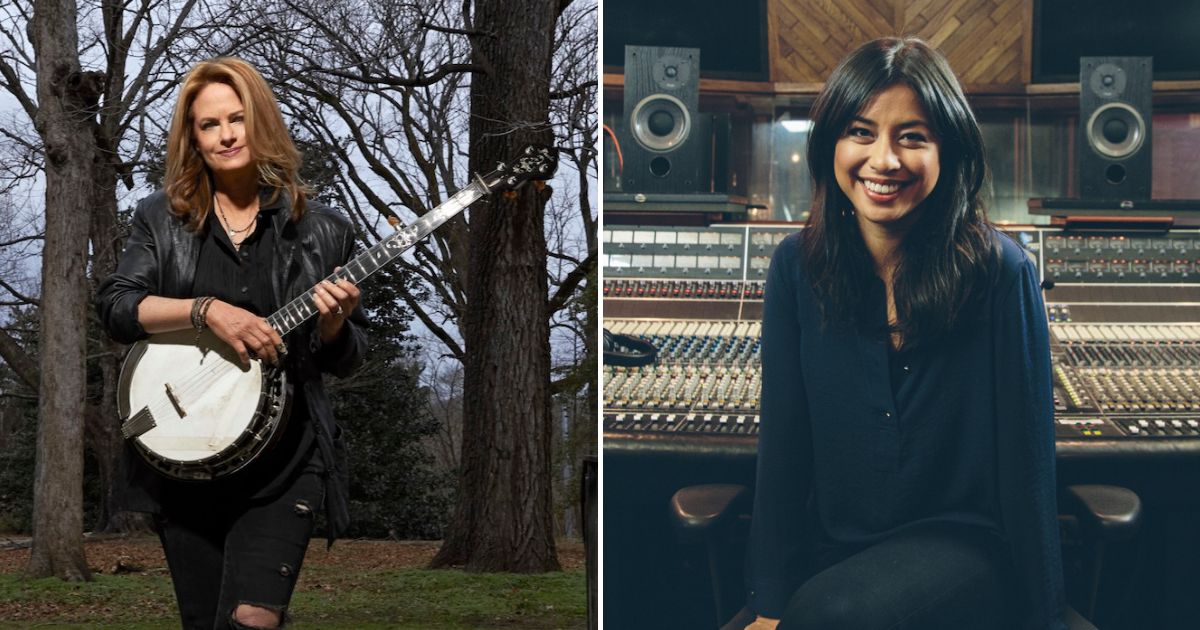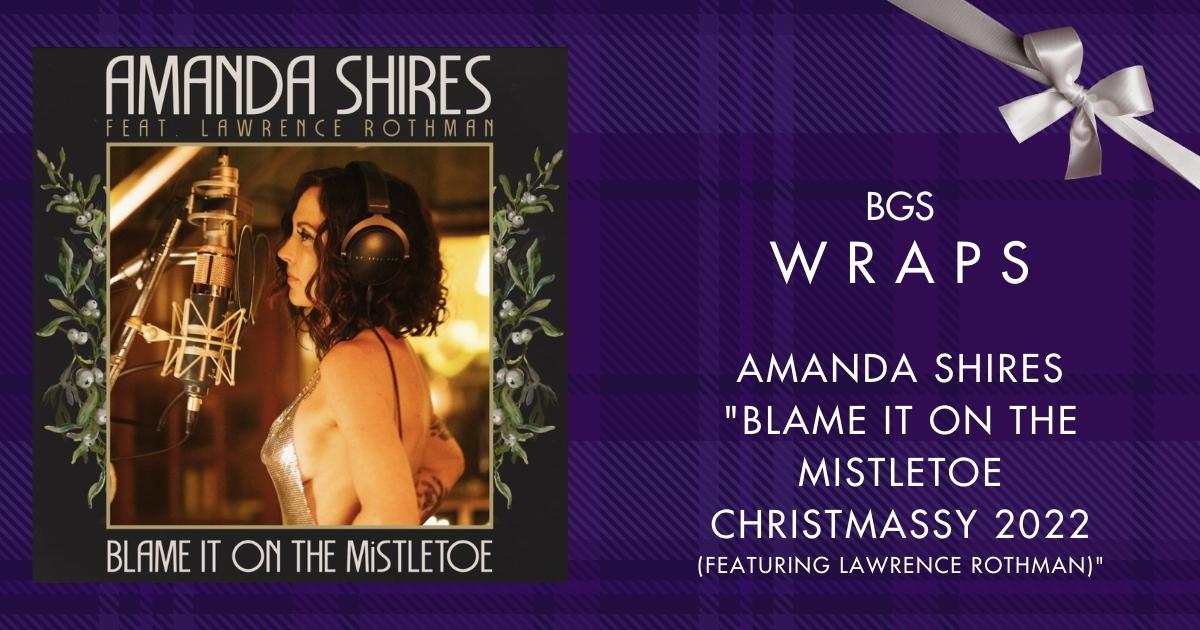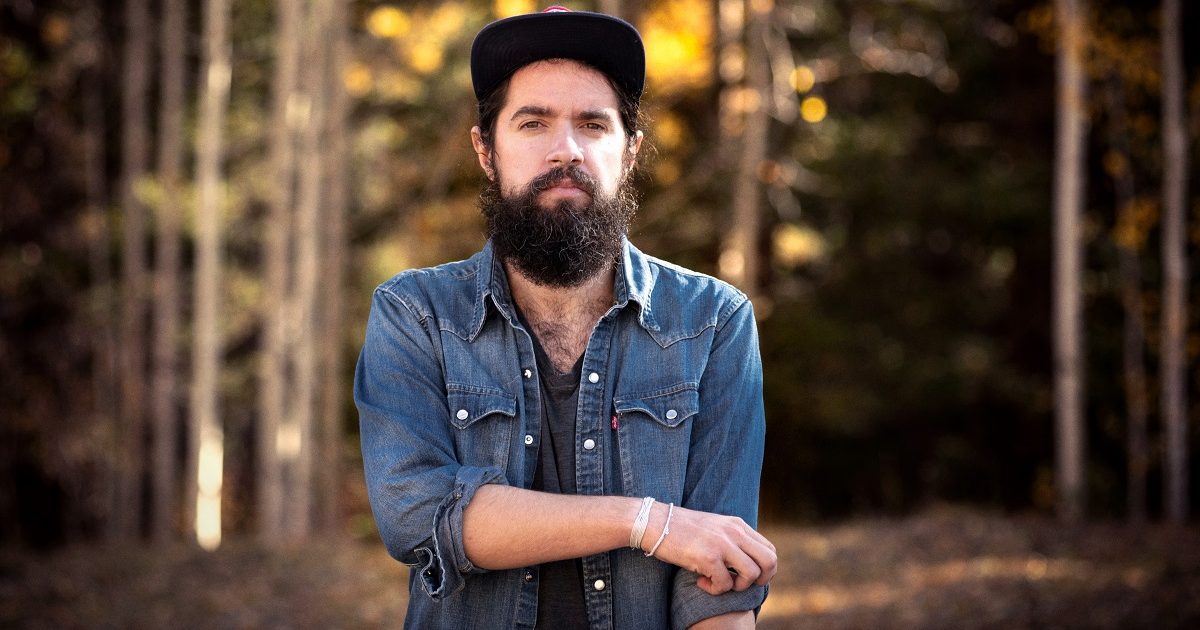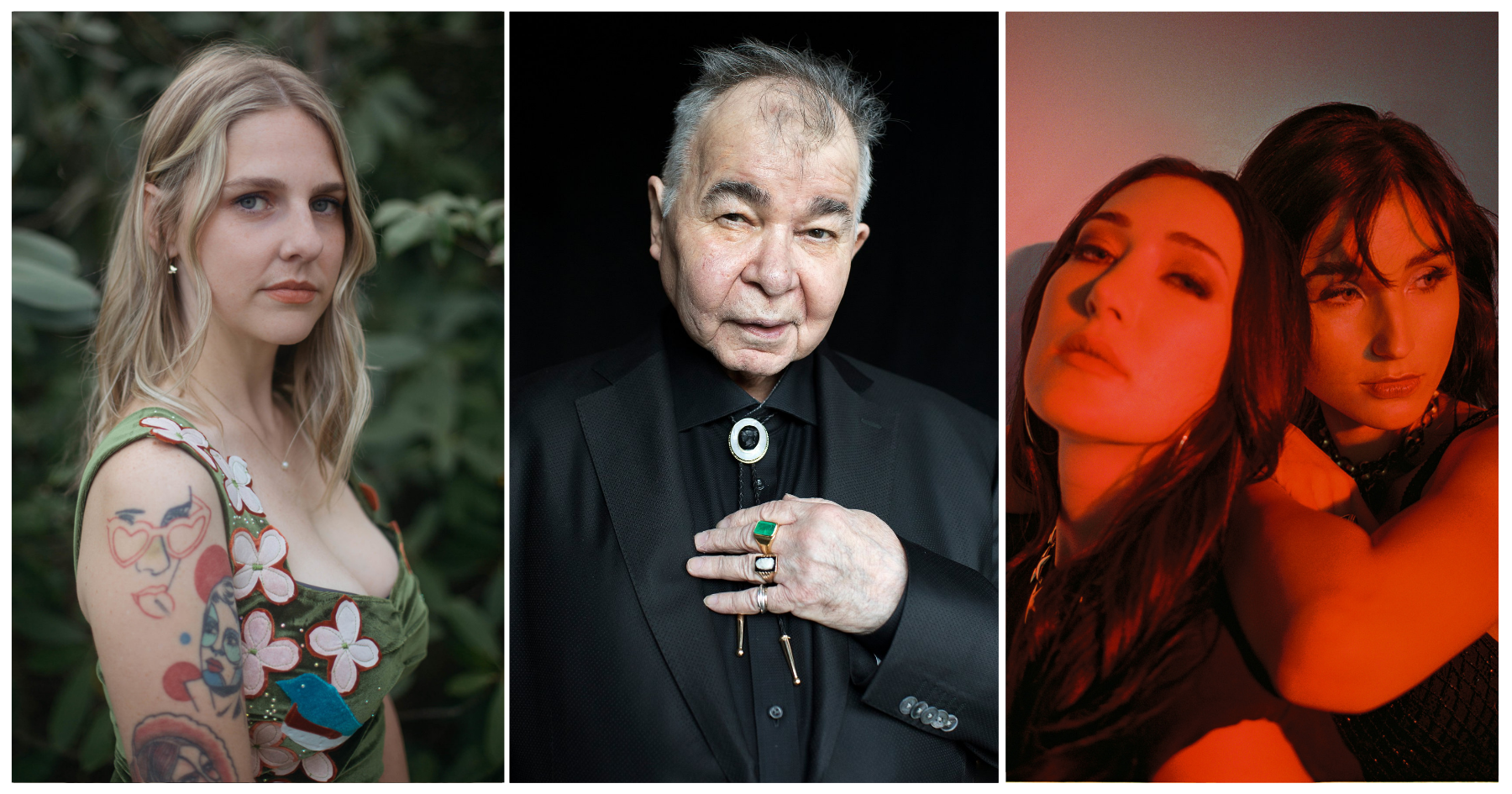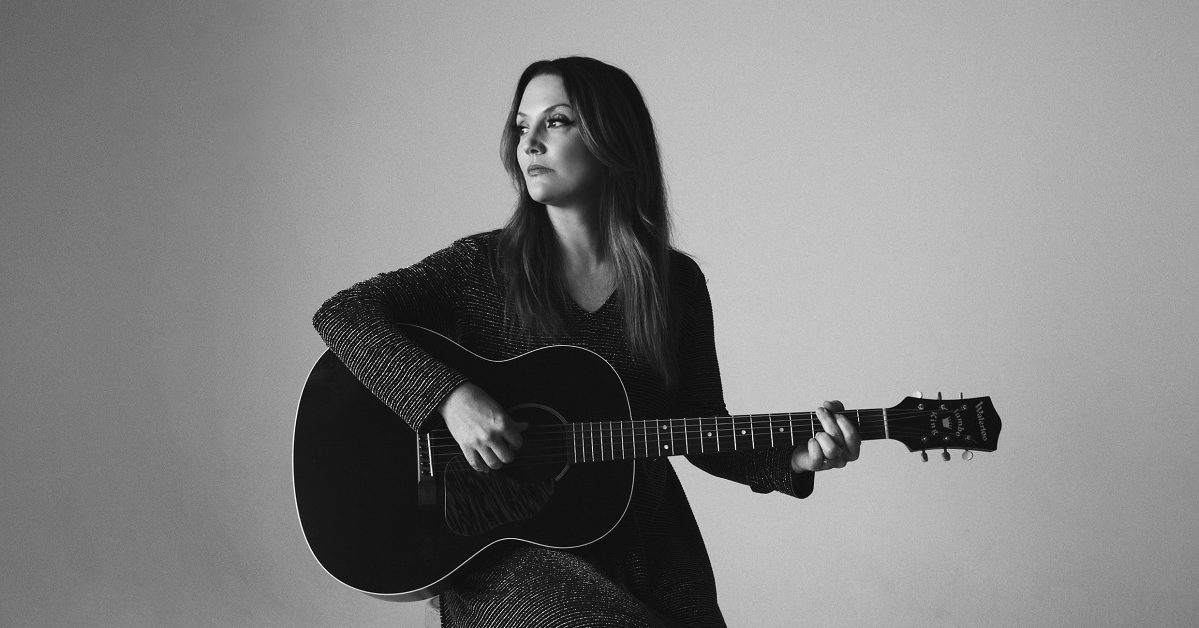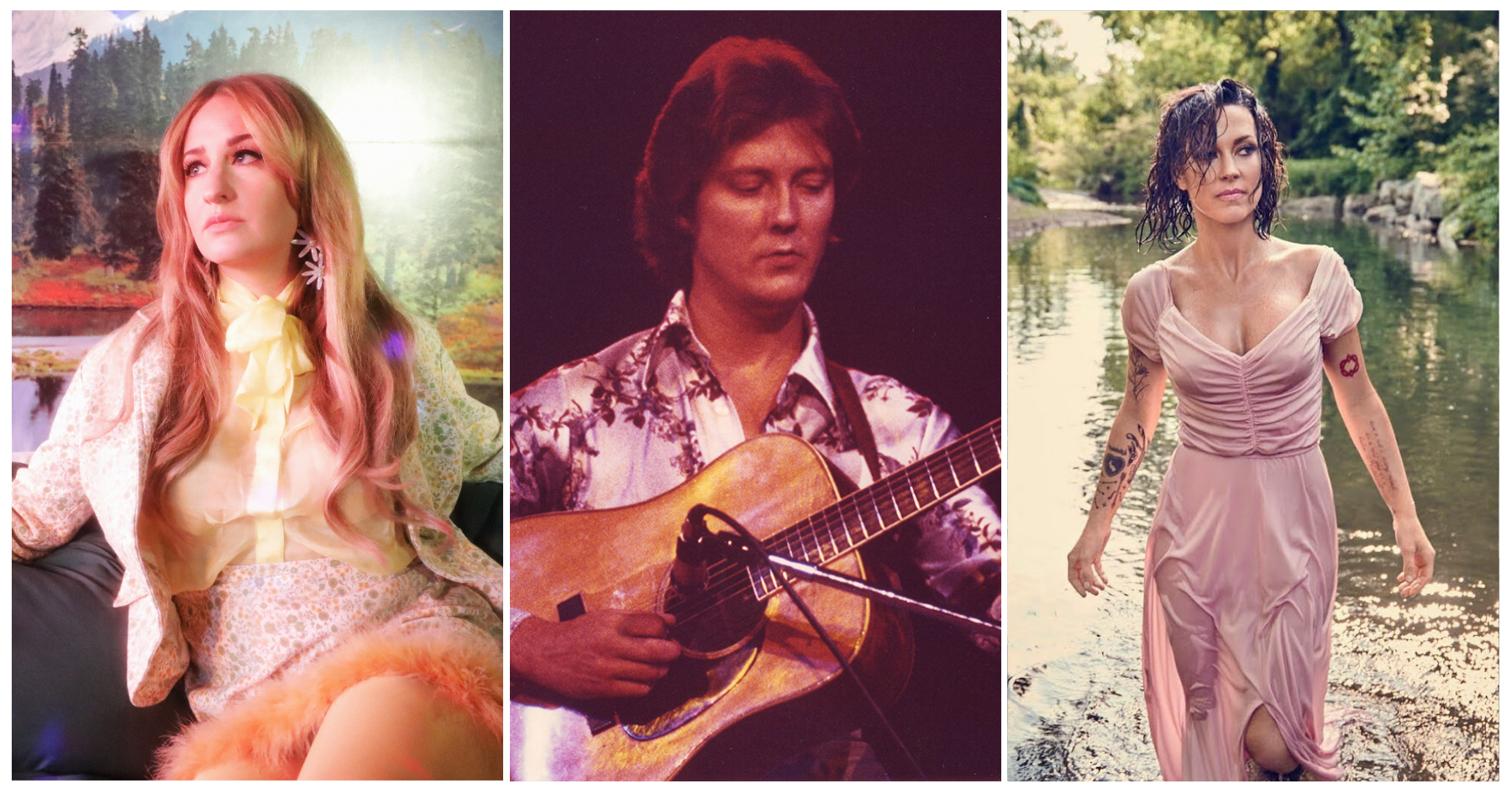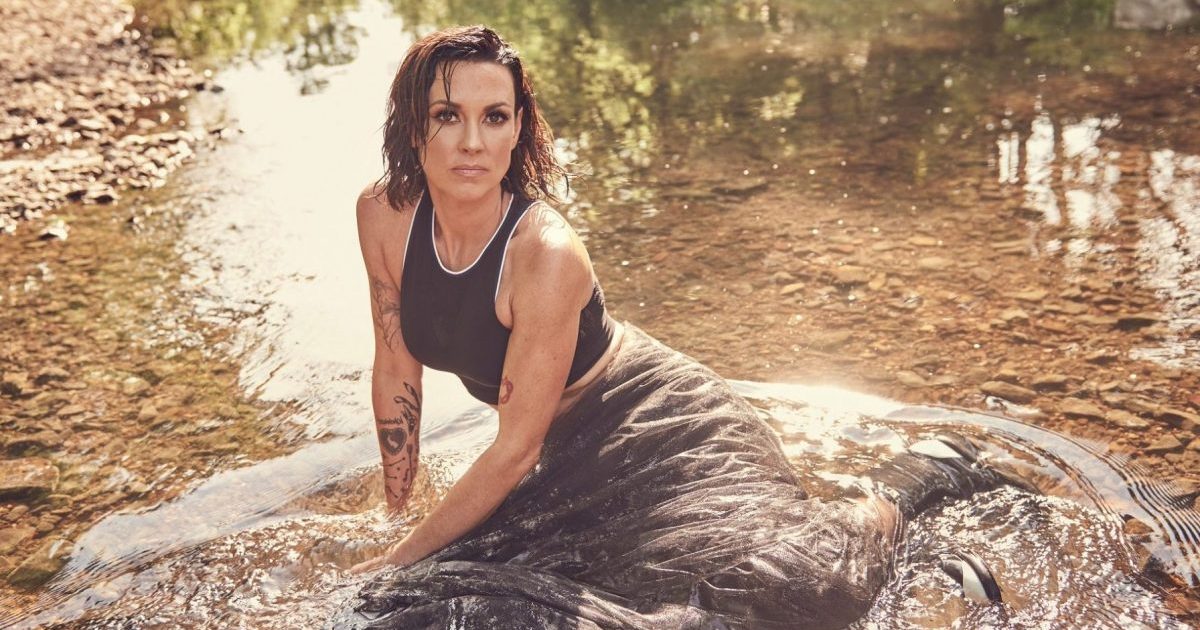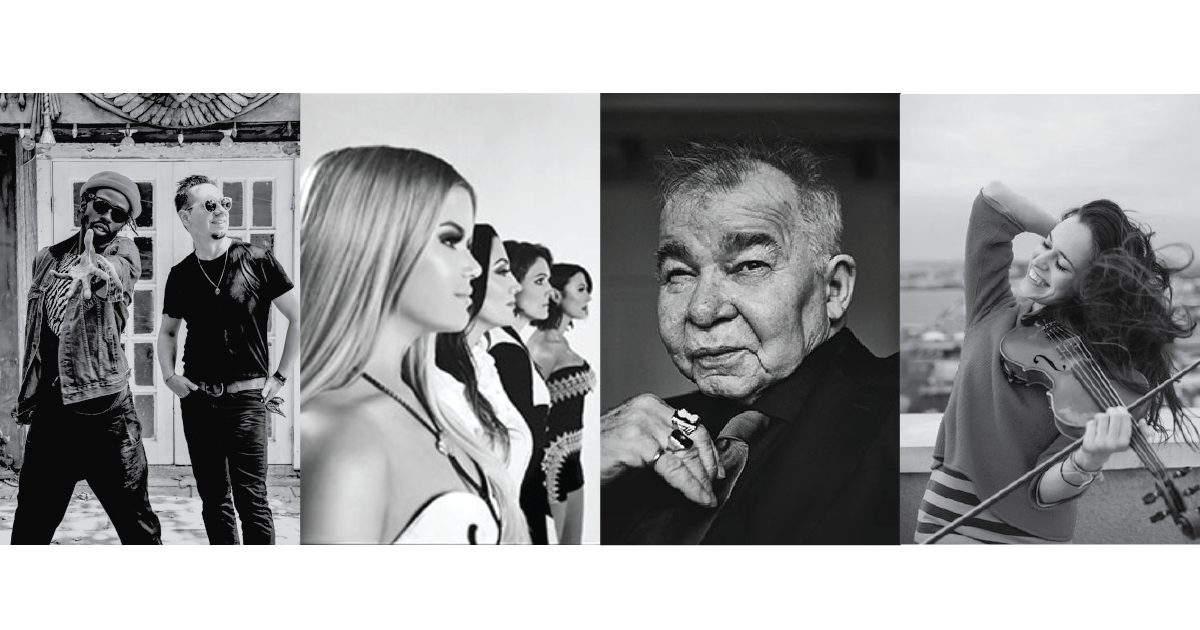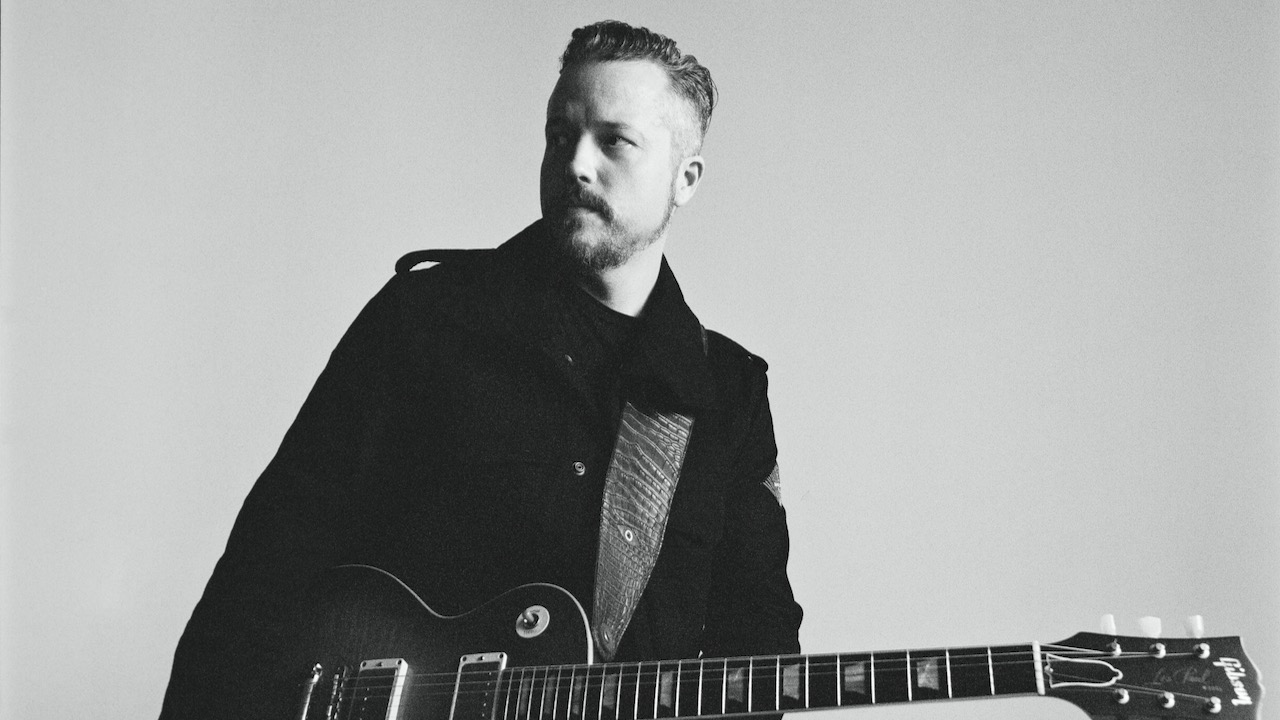(Editor’s Note: Sign up here to receive Good Country issues when they launch, direct to your email inbox via Substack.)
Eight years ago, in 2016, the harp-playing half of Brooklyn-based folk duo Devil & the Deep Blue Sea, found herself filing away songs for a solo project.
“There were certain songs… [that] would tell me who Lizzie No was going to be,” she explained in a recent phone interview.
“There were songs that felt very personal, very femme, and a little more country and a little more pop than would be appropriate in my band. Those songs started getting categorized into the ‘new solo project’ category. And then, I just had to come up with a name, you know. Like, I needed my Sasha Fierce alter ego, to be able to stand in myself.”
The name she landed on, Lizzie No, was a doozy. Considering the femininity she noticed her new songs projecting, the decision to include the word “No” in her name was no small thing. Women, especially feminine women – especially Black feminine women – have a special relationship with the word. It was important to No that her solo singer-songwriter persona reflect the energy she wanted to project, the space she wanted to carve for herself and her songs.
“I think there’s a real difference between singing songs that you wrote in the context of a band versus being a solo artist and having people literally look at you, in your physical body, and associate the songs with you and yourself. So I needed an identity, a performer identity, that would be able to encapsulate the confidence and the directness, and yes the femininity, that I wanted to present with these songs that I was writing.”
The idea of mindfully presenting femininity is nothing new, of course. Women in all professions must decide how they’d like to present; how many minutes or hours they will spend before each workday putting on their face and dressing to impress. But, there is a special place in the history of country music for artists taking the stage while female.
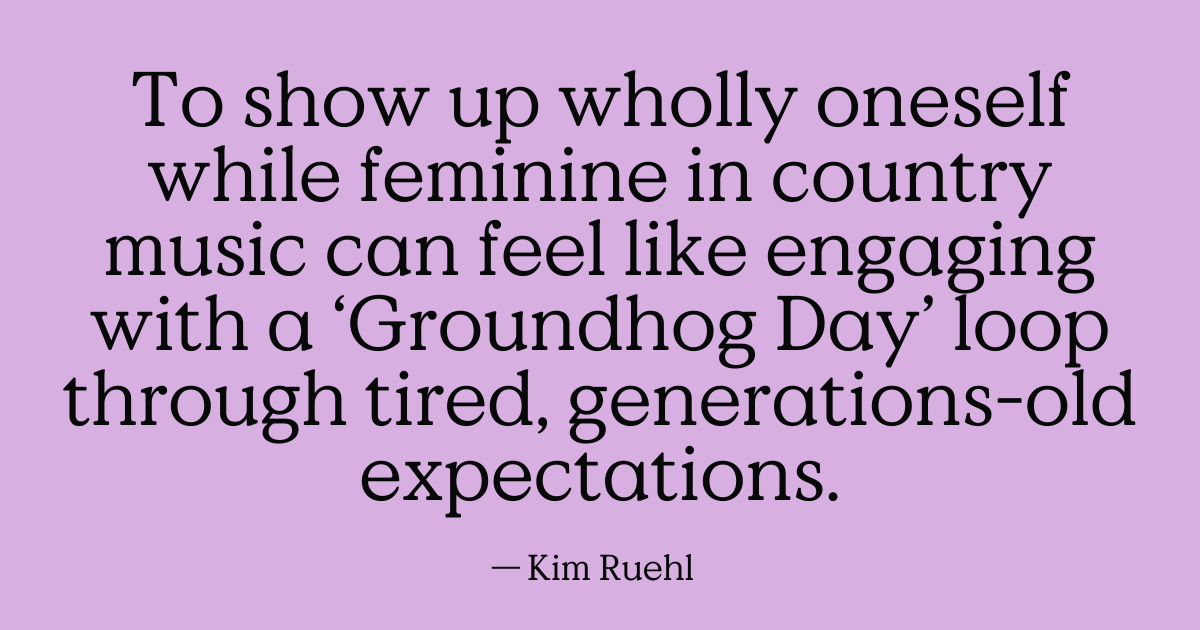
It was far less than a century ago that female country singers were expected to travel with a husband, brother, or other male family member as their escort. Women country singers were expected to eschew ambition and to primarily be a pretty face with a pretty voice.
All that started to shift when Mother Maybelle and the Carter Sisters made their Grand Ole Opry debut in 1950 – the first all-female band on that storied stage. In fact, well aware of how women were perceived and received by the country music establishment, Mother Maybelle nonetheless insisted her daughters become masterful on their instruments, develop independent business acumen, and forge a career on the stage.
For the 74 years hence, women who can and do shred have been of great interest to country music critics and fans alike.
Author and critic Marissa A. Moss dove deep into this subject with her 2023 book, Her Country: How the Women of Country Music Busted Up the Old Boys Club. Meanwhile, on social media, fans and artists alike routinely return to the evergreen topic of how much airplay women get (or, rather, don’t) on country radio.
To consider what it means to show up wholly oneself while feminine in country music can feel like engaging with a Groundhog Day loop through tired, generations-old expectations. Granted, the options for women have broadened a bit since the Carter Sisters showed up in their gingham checks and transcended what one might have expected from pretty women who sing and play. (A new documentary by Kristen Vaurio on Paramount+ about the youngest Carter Sister, JUNE, is well worth a stream.)
The modern answer to the Carters’ quietly subversive embodiment is a cadre of demonstrably feminine women like Allison Russell, Margo Price, and Amanda Shires. Recent Grammy winner Russell comes off like a clarinet-wielding, angel-voiced supermodel, self-made from equal parts awful trauma and infectious joy. Price appears as a cross between Willie Nelson and Cher, riding her biting narrative lyricism on the vehicles of magic mushrooms and low-cut, glittery fringe. Shires saunters about in spiked heels and leotards, a finer fiddler/poet than you’ll find anywhere else on God’s green earth.
That each of these women is stunningly talented as a lyricist, multi-instrumentalist, and performer, is inarguably the most important thing. But the messages they convey by leaning hard into how they wear their gender, remind us that women in country music no longer need to amplify the pretty and take the brilliance behind the scenes. There’s more than enough space for both/and.
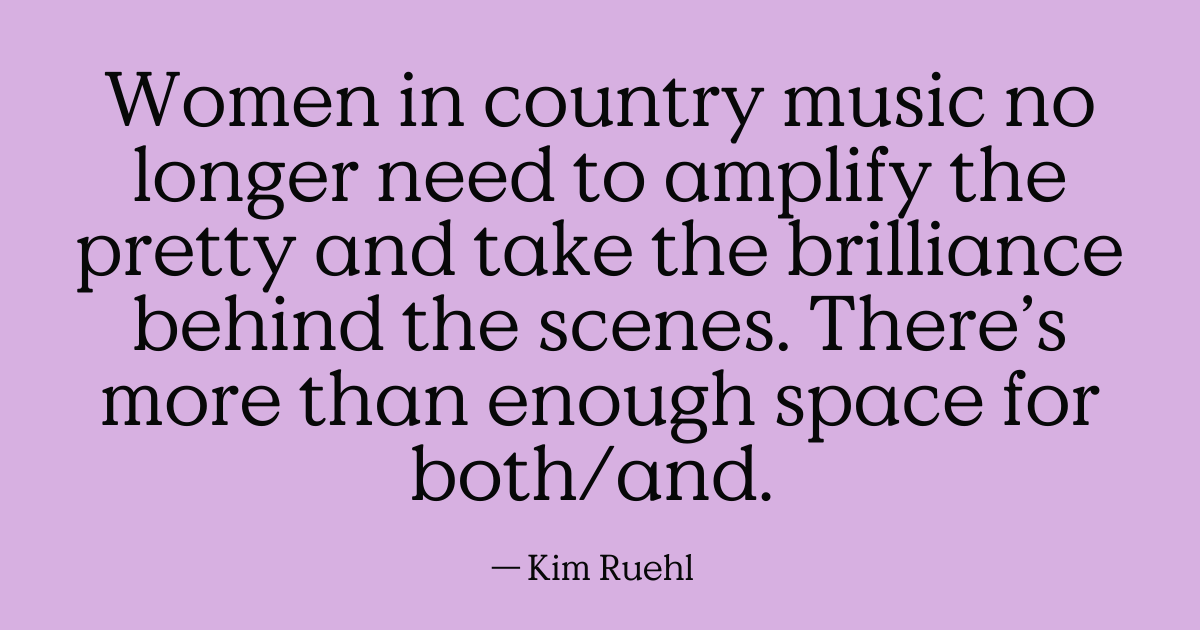
It wouldn’t be a leap to suggest this is thanks in part to a rising tide of queer country artists. Lizzie No, Russell, and others – Jaimee Harris, Brandy Clark, Jaime Wyatt – prioritize songcraft as equivalent to crafting persona. Other queer artists like Paisley Fields subvert the masculine/feminine binary with candid expressions of personhood that transcend traditional femininity while remaining sonically adherent to traditional country music.
All of this raises numerous questions, including: What does 21st century femininity bring to the cis-het boys’ club of country music? Shouldn’t women get country airplay while also being free to show up as the full human they are?
Lizzie No is a good example of a walking answer to both questions.
A rising country singer whose music lands warmly – a stew of Dolly and Emmylou, a twinge of Kris, just a pinch of Sleater Kinney – her new album, Halfsies, is a mostly-country and occasionally rock and roll rumination on the intersections of love, identity, and freedom. While it may resonate for plenty of men and folks who don’t identify as feminine, it is, in other words, about the numerous conundrums and longing-for-transcendence of womanhood.
“There’s a patriarchal anxiety around performance and illusion, and we associate that with femininity,” No says. “[I’m] actually leaning into that and saying, ‘It’s all a mask. Gender is a mask for me and for you.’ That’s a big part of how I’ve constructed my identity as Lizzie No. I am one thousand different things and [you shouldn’t] try to narrow it down musically, or in terms of gender.”
She goes on to affirm that the way she constructed her performer persona is similar to drag. Considering country music is most often associated with Nashville (where No recently relocated from New York City), it’s worth considering that this new wave of feminine people in country music has risen at the same time as a push-back against drag performers in the same state and across the country. The tension between these two phenomena is mostly political and definitely charged.
When indie band Yo La Tengo played a show in Nashville shortly after the state passed its anti-drag bill, their decision to wear dresses onstage was a funny, tongue-in-cheek protest. An overt resistance, an assertion of allyship. This is different from when someone like nonbinary country singer Paisley Fields steps out in a sheer top and jewelry, or a dress. The former is clowning on politicians; the latter is throwing on something comfortable to engage in vulnerable, intensely personal creative expression. The former is playing to its indie rock audience, replete with left-leaning, ironic hipsters; the latter is forging a path of their own in the country music world, where femininity is a little more… complicated.
“The first thing that comes to mind when it comes to femininity in country music is just how misogynistic of a genre it is,” Fields said in a recent interview.
For example, they added, “The first time I wore a dress [onstage], I noticed the way people treat me is very different. Even if I’m just in a more, like, sort of flamboyant or more feminine look—maybe hot pink pants or something – I’m treated very differently. If I’m wearing a dress, it’s almost a little scary.”
Over the past couple of years, since coming out as nonbinary, Fields has been exploring what it means for a person assigned male at birth to express authentic femininity on a country stage. Indeed, they are just as likely to appear in the jeans-boots-hat costume of a country man as they are in a sparkly net top and purple chaps – an outfit nobody would look twice at, were it donned by Margo Price or Lizzie No. In the process, they’ve firmed up their own convictions around country music’s relationship with femininity.
“It would be better for a woman to be masculine [in country music] than for a man to be feminine,” they say. To clarify: “Some of the most successful women in country music are obviously very feminine and embrace their femininity, like Dolly Parton and [Shania] Twain. But there is this sort of like, tough as nails [persona], which I guess is perceived a lot of times as masculine.”
Granted, this tough-as-nails persona is often an outcropping of the mountains these women have needed to climb in order to make it onto the big stage.
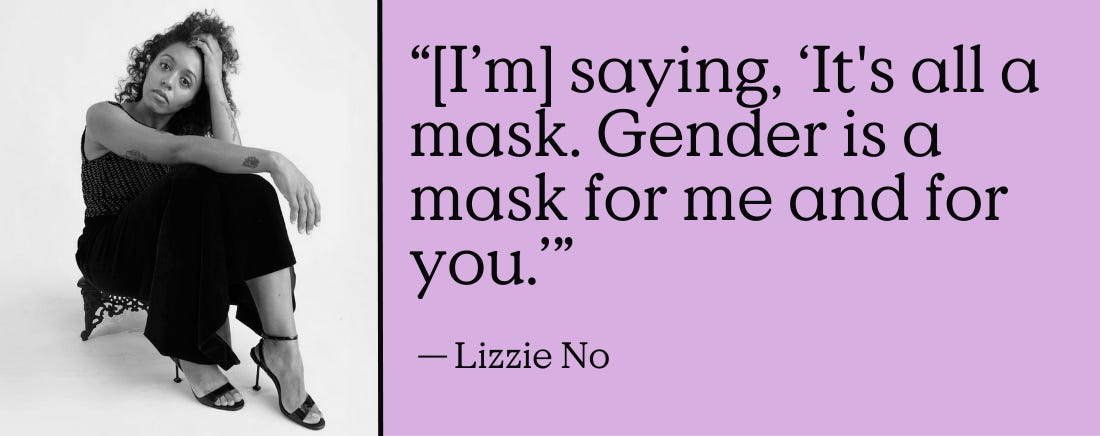
In her 2022 memoir, Maybe We’ll Make It, Price detailed a few shady encounters with Nashville songwriters and executives who saw her as a young, hopeful girl who deserved to be exploited. That she survived these instances and earned success with her music on her own terms, in the end, perhaps lends itself to a tough-as-nails persona. But it is one that comes from being a woman with well-marked boundaries in a misogynistic boys club. When she rode into the 2022 Stagecoach Festival in a crop top and glitter skirt, on horseback, she knew she’d earned the right.
This balance of toughness and femininity (often used in a context where it’s synonymous with “weak” or “fragile” or “naïve”) is indeed not a stretch, but rather the innate characteristic of a woman with a strong moral center and the desire to get hers.
Lizzie No explains perhaps better than this writer can.
“I feel my most feminine when I am in some way using my physical body to achieve political ends,” she says. “To me, that’s my ideal of femininity. It’s like the women who lured Nazis to their death by being hot. When I want to post about taking down the government, you know, I will always use a bikini pic. … Because it’s like, hey, look over here, you’re going see my midriff and you’re going to learn about how capitalism has alienated us from ourselves.”
Photos of Lizzie No by Cole Nielsen.

